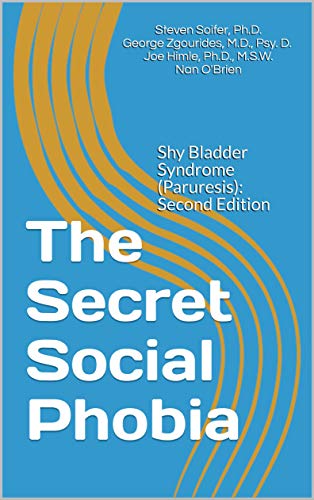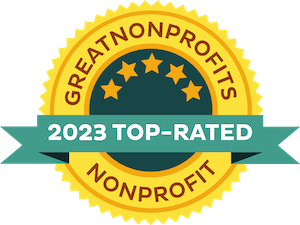Help for Women
 Ever since I was six years old and was walked in on while on the potty by a neighbor boy, who announced with exuberant laughter “I hear you peeing!”, I have had bathroom issues. These issues snowballed over the years into a full-blown case of primary and secondary paruresis. When I was in a bathroom out of my comfort zone I would often feel like I was sitting on a time bomb that could go off at any moment. I had better be ready to run if someone knocks on that bathroom door or starts jiggling the handle. It was a feeling of being unsafe. Logically I knew that wasn’t true, but try telling that to my pelvic floor muscles which seemed to have a mind of their own.
Ever since I was six years old and was walked in on while on the potty by a neighbor boy, who announced with exuberant laughter “I hear you peeing!”, I have had bathroom issues. These issues snowballed over the years into a full-blown case of primary and secondary paruresis. When I was in a bathroom out of my comfort zone I would often feel like I was sitting on a time bomb that could go off at any moment. I had better be ready to run if someone knocks on that bathroom door or starts jiggling the handle. It was a feeling of being unsafe. Logically I knew that wasn’t true, but try telling that to my pelvic floor muscles which seemed to have a mind of their own.
In my training as a health coach I learned that safety, love and belonging are three emotional needs that all humans have. Since I have suffered with paruresis most of my life and kept it a secret for a very long time, there were many times I didn’t feel safe (in bathroom situations) and certainly didn’t feel like I belonged.
In middle school I can remember tagging along with a group of friends when they all went to the girls room, but I couldn’t do what they were doing, and it was evident they did it without a second thought. I could not comprehend how they could operate that way. Eventually I didn’t even enter a stall. “I don’t have to go right now” I would say, as my bladder yelled to my brain, “Liar liar pants on fire!” I couldn’t tell my friends. It was easier to bear the physical pain than risk the unknown. Certainly I was the only person, or at least the only girl in the world, with this problem. I just couldn’t risk being that different. I already felt like I didn’t belong, but I didn’t want others to know. This feeling continued as I grew up, went to college, took jobs. I never belonged with other women, who go to restrooms in packs—talking, laughing, and peeing like Olympic gold medalists, like a garden hose on full blast. Eventually I just avoided restrooms. They weren’t safe for me and I didn’t belong in them with successful urinaters.
When I found the IPA in approximately 2002, my life started to change. I found out I was not alone with this problem after all. Not only that, but I read that recovery was possible. Once I wrapped my head around the possibility that maybe I could start to improve, I attended a workshop and made progress! Letting my secret out was freeing! And being in the same boat with a group of men and women just like me bordered on a spiritual experience. It was powerful!
When I became a health coach and decided to help other women with paruresis, I felt like all my suffering was not for nothing. It has a purpose now. Though I am still a work in progress, I offer a safe place and sense of belonging in my free monthly support group.
I urge others with paruresis to attend a workshop, join a support group, or get one-on-one coaching. There is help out here. Please reach out. women@support.paruresis.org
- Andrea Weyant, Women’s Support Coordinator (3-15-23)
QUICK LINKS
INTERNATIONAL PARURESIS ASSOCIATION
P.O. Box 21237
Catonsville, MD 21228
You Are Not Alone.
There Is Help For You!
Shy Bladder, Bashful Bladder, Pee Shy
IPA OFFICE HOURS
Monday - Friday
10:00am - 6:00pm (ET)
844-I-CANT-PEE (422-6873)
US/Canada
443-315-5250 Office
Email: getinfo@paruresis.org
This website is NOT a substitute for medical or legal advice and does not constitute the practice of law, medicine, psychiatry, clinical psychology, clinical social work, or any other mental health profession. If you are having trouble urinating, you should always contact a physician since difficulty with voiding can be a symptom of a serious medical condition. We are a group of professional people and people who have suffered with paruresis. We have assembled a board and a board of advisors to help people cope with urinary dysfunction that has a psychological or social origin. On this website, we are NOT practicing medicine, psychiatry, clinical psychology, clinical social work or any other mental health profession. You should have your doctor evaluate your condition before diagnosing yourself, and seek the appropriate necessary mental health counseling if warranted. IPA, Inc. disclaims any and all legal liability whatsoever.



